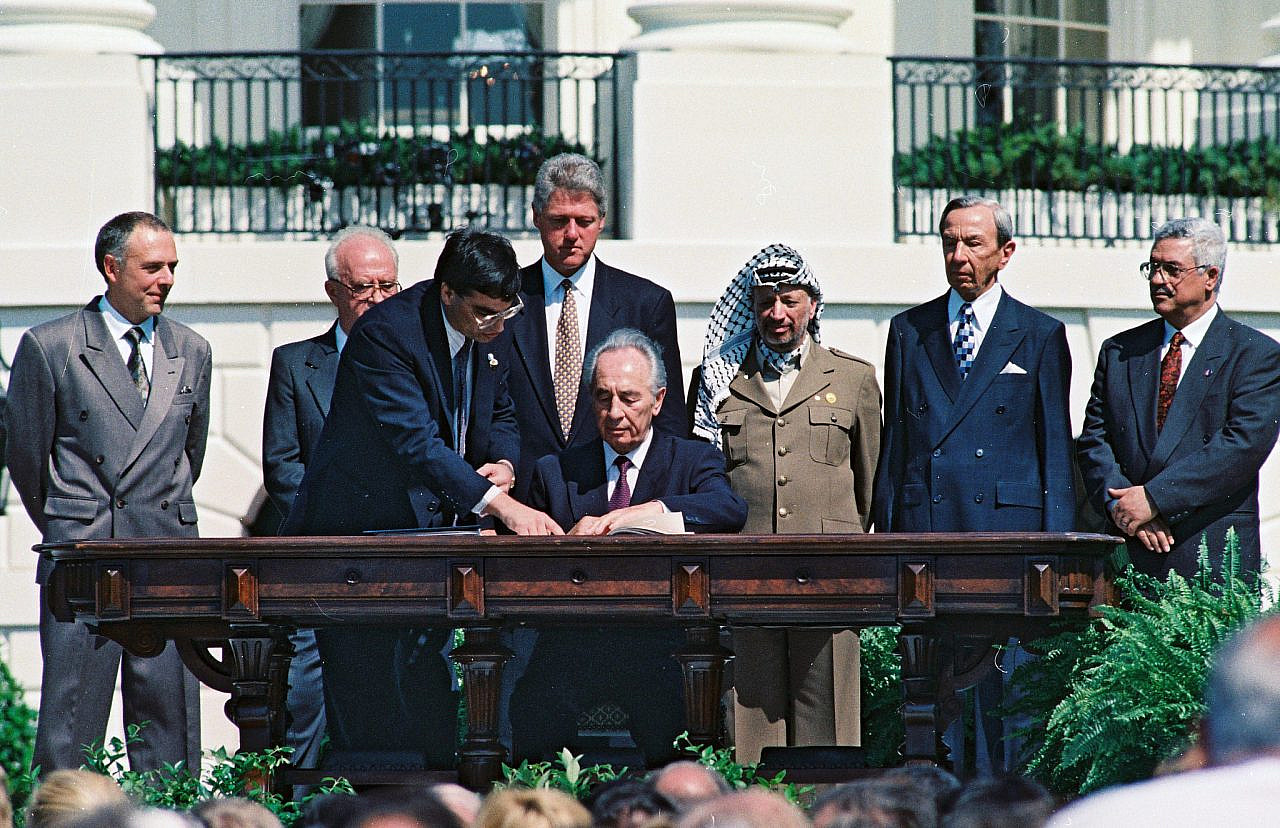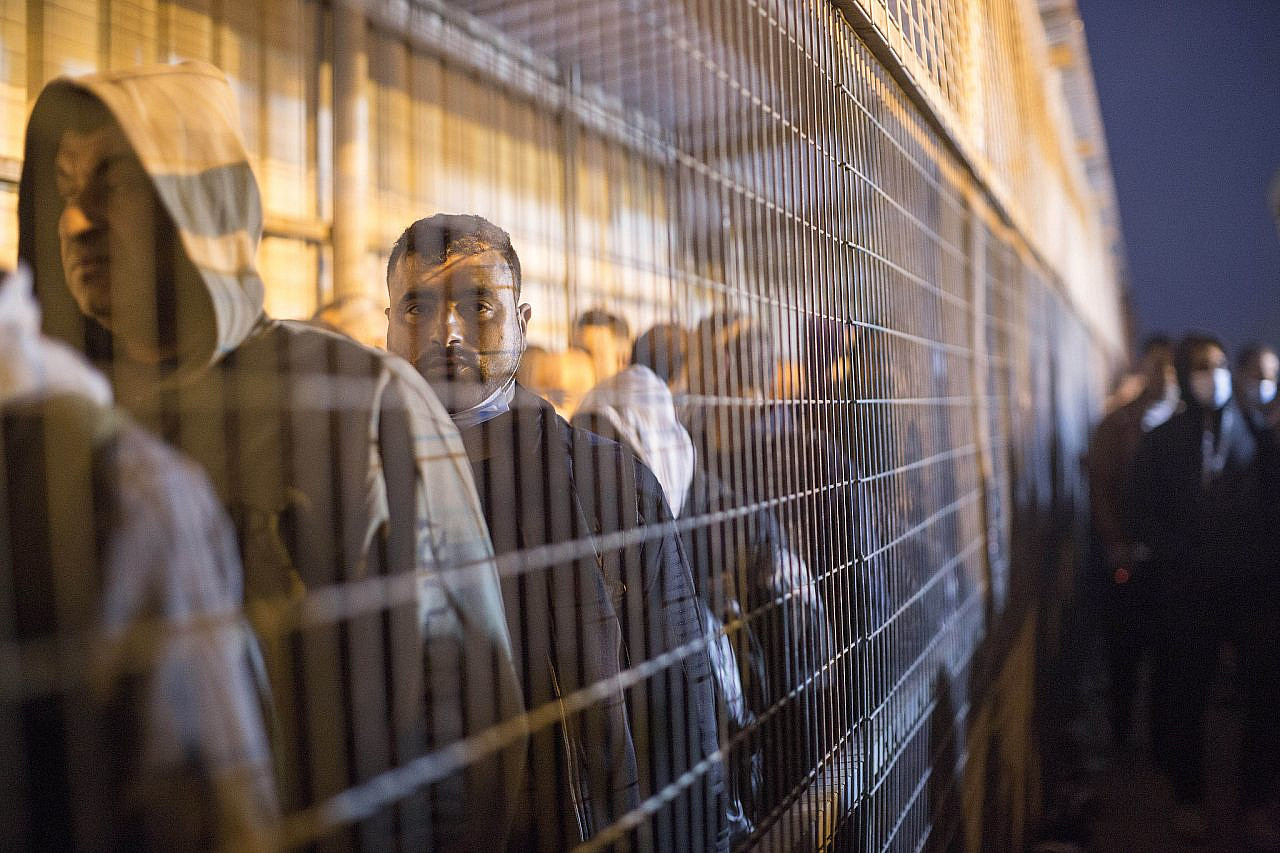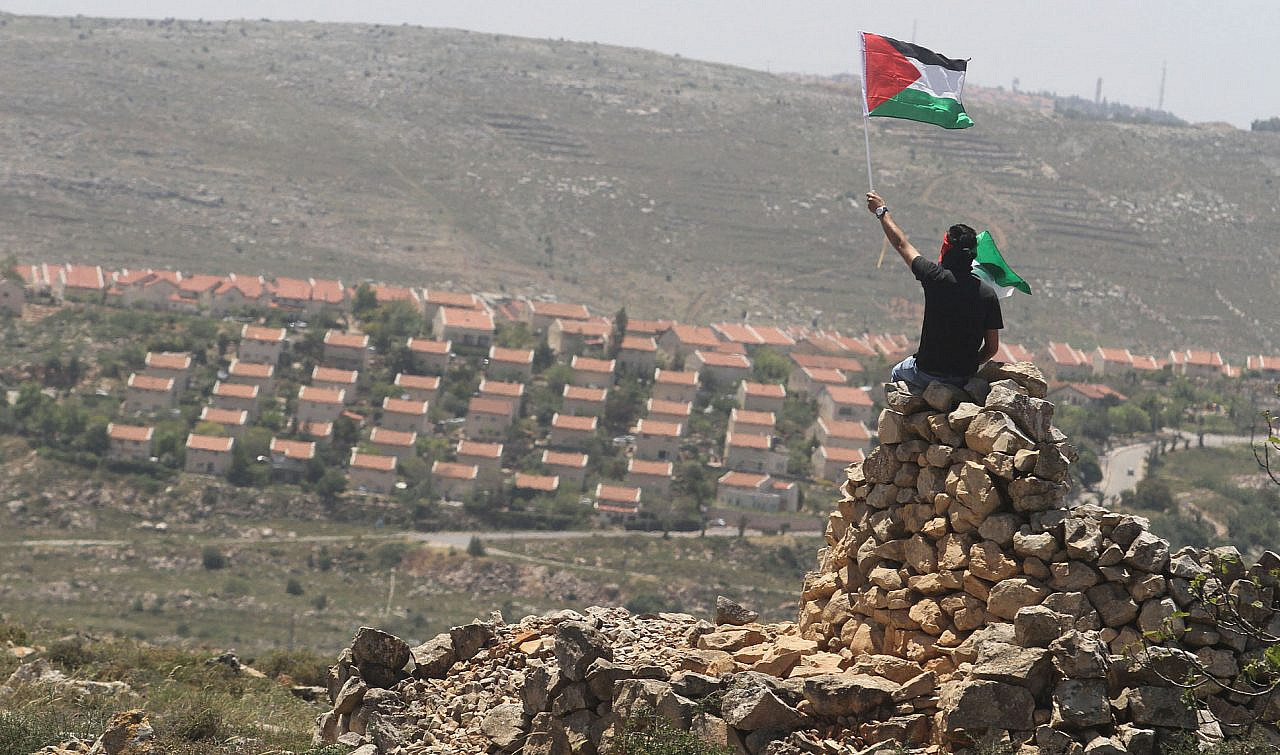The Oslo Accords were brokered when I was a young lawyer at the start of my career, after years of living as a student in Jerusalem under the shadow of the First Intifada. I had left the city in 1990, worn out in no small measure by Jerusalem itself, the constant tension, and the intense political activity against the occupation. It is therefore little wonder that despite my condemnations of Oslo, those days nevertheless gave me a small glimmer of hope — perhaps something new was being born after all. But as much as I wanted the agreement to work, in my mind, I knew better.
There were, at the time, all kinds of opponents to Oslo among the Palestinian public. From the first, some Palestinians did not believe in the two-state solution, and saw it as a defeat for the Palestinian cause. I was not one of them: rather, my opposition to Oslo stemmed from an inner conviction that the Accords themselves could not actually lead to such a solution. I was not influenced by what was being said on television or in the public discourse; instead, I sat down and read the agreements through the eyes of a young lawyer. After all, a political agreement is one that contains its own contractual logic: it sets out a firm timeline, there are rules in case of breach of contract, and so on. It seemed to me that the Palestinian negotiators could have used a little legal advice.
There are three central problems in the wording of the Oslo Accords, as can be gleaned from the exchange of letters between Israeli Prime Minister Yitzhak Rabin and Palestine Liberation Organization leader Yasser Arafat, which preceded the signing of the Accords on the White House lawn on Sept. 13, 1993.
The first problem is an imbalance in the two sides’ recognition of each other’s legitimacy. The PLO recognized Israel and its right to exist, and recognized Security Council Resolutions 242 (which called for the withdrawal of Israeli soldiers from the occupied territories and acknowledged the claim of sovereignty, territorial integrity, and political independence of every state in the region following the 1967 war) as well as 338 (which called for a ceasefire following the 1973 war). But in return, Israel did not recognize the Palestinian people’s right to a state or their right to self-determination. Instead, it simply recognized the PLO as the sole representative of the Palestinian people.
This lack of equivalency left the PLO as little more than an empty vessel; there is, after all, a difference between recognizing the PLO’s existence and recognizing the legitimacy of its political demands. Moreover, at the time, Israel had strategic self-interest in recognizing the PLO as the sole representative of the Palestinian people. If Israel did so, the PLO’s recognition of Israel’s right to exist would supposedly represent the voice of the entire Palestinian nation. The PLO’s recognition of Israel would have been meaningless had it not come from an authentic representative.

In this light, the PLO’s instrumental nature as a representative body is clear. A representative can act either in the interest of, or to the detriment of, whomever they represent. The representative can make demands of the other side, but it can also make concessions on behalf of the people it represents. When the PLO presented clear claims and demands, Israel denied its requests, but when it recognized Israel and offered concessions on behalf of the Palestinians, Israel had no problem treating the PLO as the spokesperson of the Palestinians.
In fact, the PLO used its symbolic capital as the representative of the Palestinian people to appear on the world stage and announce the absence of the people and the elimination of their narrative. In effect, this was the PLO’s last significant act in the political arena. Israel intended the PLO’s recognition to act as a de facto declaration of its own suicide. Since then, the PLO has ceased to be an important political actor, and all that functionally remains of it is the Palestinian Authority — which serves as Israel’s subcontractor for violent crackdowns in the West Bank.
Two years after the Accords were signed, the PLO committed to annulling the sections of the Palestinian National Charter that do not recognize Israel. At the time, this seemed to me an ill-considered move; I published an article in Haaretz titled, “There is No Compromise Without Recognition.” The annulment of the Charter’s statements was done without any action by Israel in return, which still refused to commit to recognizing a Palestinian state in the occupied territories or the right of self-determination of the Palestinian people and other national rights in their homeland.
These historic factors helped bring about the present situation, in which Israel is an immovable “fact on the ground” and has narrowed the scope of territory on the negotiating table from the entirety of Israel/Palestine to merely the West Bank, now the sole territory even remotely up for discussion. If the dispute is over Palestine as a whole, then the division of the entire territory from the river to the sea into two entities is the optimal solution. But if the whole problem boils down to the territories occupied in 1967, then a reasonable solution would lead to the division of the disputed territory between the settlers and the Palestinians.
This narrowing of the territory up for debate drastically alters the playing field: if the Palestinians insist on controlling the entirety of the occupied territories, they will be perceived as obstinate radicals who are claiming everything for themselves. The fact that the Palestinians have already waived their right to more than two-thirds of their homeland before even sitting down at the negotiating table is never taken into consideration. This was a trap set for the Palestinians, who have been unable to free themselves from it to this day. Unfortunately, it is not the only such trap.

Self-professed ‘terrorists’
Recently, a rising chorus of critical voices has demanded that the PLO withdraw its recognition of Israel, since Israel did not comply with the conditions of the Oslo Accords. But this is a dangerous claim. Recognition, by its very nature, is one-time and cannot be retracted. Furthermore, recognition is not a tangible, material asset — its importance lies in its symbolism, and in the absence of such symbolism, it is bereft of meaning.
If the Palestinians want to withdraw their recognition, they will never again be able to trade it for Israeli withdrawal from territories under its control, since the Israelis will never believe that recognition won’t again be rescinded.
The exchange of letters between Arafat and Rabin also included a clause in which the PLO pledged to renounce, and not only condemn, terrorism. That is, the PLO itself agreed to call its struggle up to that point “terrorism.” This posed several problems, but I want to focus on one in particular. I have no intention of having a debate about the definition of terrorism. Rather, the problem is related to the future: what will happen if Israel does not agree to withdraw from the occupied territories or to a two-state solution? What means will be available to Palestinians in their fight against occupation?
The difficult answer to these questions became painfully apparent in the late ‘90s. Israel halted the Oslo process and continued expanding the settlement project. It was not at all clear where the Oslo process would lead and what the permanent solution would ultimately be. Israel controlled the land, the air, the borders, the water, and all the resources, and merely handed over management of parts of the population under occupation to the PA; in other words, Israel maintained actual control, but put all responsibility on the PA’s shoulders. What’s more, the agreement did not include an explicit stipulation that would prohibit the continuation of settlement construction in the occupied territories.

Under these conditions, Palestinians could neither advance toward an independent state nor return to the logic of revolution and armed struggle. Not only do they still lack the power and organization to do so, but they are also conceptually trapped by the Oslo Accords. The world — above all, Israel, the European Union, and the United States — recognized the PLO on the basis that it renounced terrorism and accepted certain rules of the game. Therefore, a return to armed struggle is inescapably viewed as a return to terrorism — only this time, the Palestinians themselves will have given a name to their struggle, and they themselves have called it terrorism. Now the rest of the world is allowed to call it terrorism, too.
The language of “terrorism” transformed between the First and the Second Intifada. The First Intifada began within a generation of the start of the occupation, so the world saw it and the wider Palestinian struggle as a legitimate response to military rule. The Second Intifada, which came as a response to massive Israel violence following Israeli Prime Minister Ariel Sharon’s visit to Haram al-Sharif/Temple Mount in Sept. 2000, came against the backdrop of the Oslo peace talks. For the most part, international observers saw every stone thrown in the First Intifada as being thrown against the occupation and in favor of national liberation, but the stone throwing that came after Oslo was viewed as “terrorism.”
The context had changed, and with it the meaning of Palestinian resistance. The result has been that peace talks with Israel fail to achieve any goal, but a return to armed struggle is also problematic. The Palestinians are trapped.
I have no intention of proposing a manifesto for the future, but I do think that any idea of going back, re-establishing the PLO and returning to the principles on which the organization was founded 60 years ago, is now a non-starter. From here we can only move forward.
The PLO did its job; it seared the word “Palestine” into the world’s consciousness and proved that there is such a thing as the Palestinian people. Today’s generation has a different role in a different reality: to draft a new manifesto with the awareness that between the sea and the river there are 7 million Jews and 7 million Palestinians, and the Israelis control the Palestinians and maintain a regime of Jewish supremacy that expels the latter from their land every single day. This is our starting point.
A version of this article was first published in Hebrew on Local Call. Read it here.



